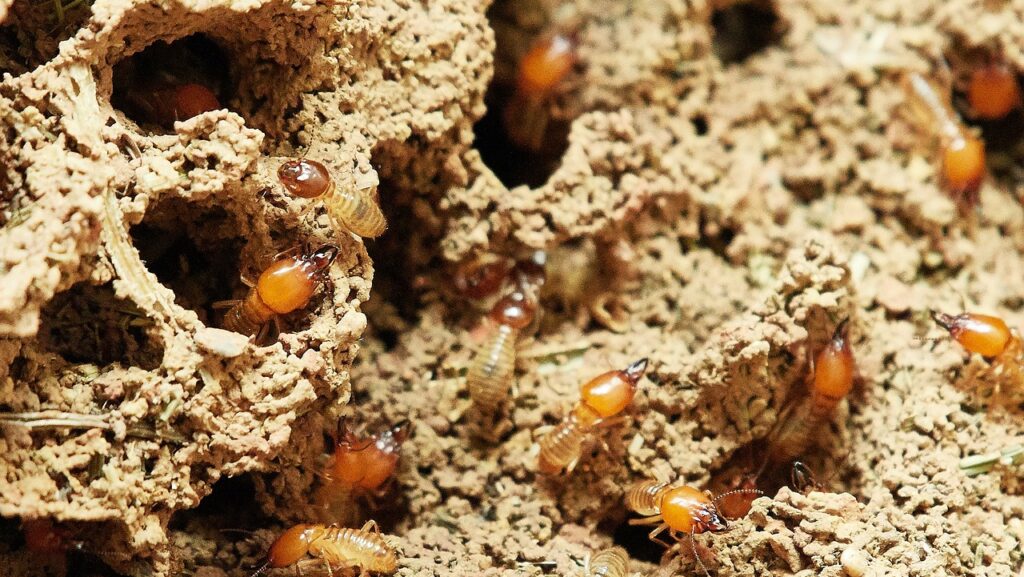Is the very thought of termites crawling around making you squirm in your seat? Well, you are not alone. The termite is the pest that causes the most economic damage of any other pest in many parts of the world.
What is also noteworthy is that you don’t often know that your beautiful wooden cabinet has been infested with termites, until it is too late. That is exactly how many of the biases – the ones that are subtle, hidden in humour, a well-intentioned remark or even a compliment – impact the people who experience them in our workplaces and societies.
Over time, these biases infest the person experiencing the bias, causing them to feel excluded. Prolonged exposure leads to a negative impact on their well-being and mental health. These are what I call ‘termite biases’.
“I don’t see colour.”
Microaggressions
These biases are sometimes known as ‘microaggressions’. I am personally not a big fan of this term. The word ‘micro’ somehow suggests that it does not have a significant negative impact, causing people to dismiss it as being of less concern.
Coined by Dr. Chester Pierce in the 1970s in his work with African Americans, microaggressions are statements, actions, or incidents that are considered to be instances of indirect, subtle, or unintentional discrimination against members of a marginalised group. However, it was only in 2007 that the term resurfaced thanks to psychologist Derald Wing Sue.
“You’re transgender? You don’t look it.”
Termite biases
In my book, The Art of Active Allyship, I define the term ‘termite biases’ as;
“brief, subtle and indirect biases that unintentionally or intentionally communicate stereotypes, prejudices, derogatory or negative attitudes towards others, and are often mistaken for a casual comment, humour or a compliment. When experienced repeatedly and frequently, they make people feel undervalued, unappreciated, and unincluded.”
‘Termite biases’ take many forms. Here are some examples of comments that are made in workplace conversations by the coffee machine, at lunch and during meetings:
- “Congrats on your new role. You are so fortunate to be a woman, there are so many opportunities for you.”
- “Your name is so hard to pronounce. Don’t you have a shorter form of your name or a nickname?”
- “I don’t see colour.”
- “Where are you actually from? You don’t look like you are from here.”
- “Wow, your hair is so big today. Are you planning on coming like that for our client meeting?”
- “You are so articulate and speak English so well!”
- “You’re transgender? You don’t look it.”
- “Wow, I would never be able to cope with being disabled. You seem to cope so well.”
- “Why are you so quiet? You hardly speak up.”
- “Happy birthday. Now that you are 30, when are you getting married and having children? Your biological clock is ticking, isn’t it?”
Other uses
‘Termite biases’ can also occur when a member of a dominant group unnecessarily cuts off someone from an underrepresented group during a meeting or group discussion session or when a member of a dominant group takes credit for an idea shared by someone from an underrepresented group.
It can also occur when a member of a dominant group explains something to someone from an underrepresented group in a condescending or patronising tone. This based on the assumption that the person from the underrepresented group does not have the capability and knowledge about the issue at hand, or is emotional and lacking rational thinking abilities.
when a member of a dominant group unnecessarily cuts off someone from an underrepresented group
But how do you know?
How do you know that something is a ‘termite bias’? Watch for the response when the bias is addressed. Very often, when ‘termite biases’ are pointed out, they are often dismissed by the person who is being held accountable for them:
- “I was actually complimenting you.”
- “Oh come on, I was just joking.”
- “You’re just being over-sensitive and over-thinking this; it was just a casual comment.”
So how can you be an active ally and address these biases around you?
- Be deeply curious to find out more about ‘termite biases’. What words or phrases do you need to look out for in your own communication, and also that of others?
- Be aware that because these biases are so deeply embedded into casual conversations and humour, it is often not easy to spot them. It is also important to note that these biases sound different across cultural contexts and languages.
- Engage in honest introspection to reflect on the stereotypes and prejudices that underpin these ‘termite biases’. They may not be obvious at first, but reflect deeply to understand how they impact someone from an underrepresented group.
- Humbly acknowledge that while you may not personally be affected by these ‘termite biases’, others are. When in situations where you may not be directly negatively impacted by a ‘termite bias’, be sure to use the advantage that you have – your privilege – to address the bias at play.
- Engage empathetically when addressing ‘termite biases’. Today, it might be someone else’s biases that you are pointing out, while tomorrow it could very well be your own.
- Use the power of questions to ask the right questions in the right tone to get the other person to reflect deeply on their biases, and usage of certain words and phrases.
- When your own ‘termite biases’ are pointed out, listen without getting defensive, apologise sincerely while keeping it crisp, and focus on responding in a way that reflects your willingness to learn and do better.
While we have become more aware of and better at addressing overt forms of discrimination, be wary of these ‘termite biases’ because they are far more pervasive than we think, and have the ability to derail our efforts to be inclusive in our workplaces and societies.







